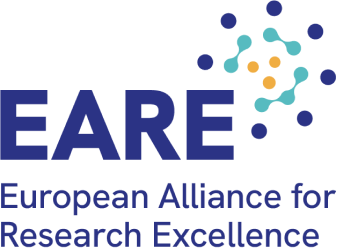
The Data Act risks falling short of its ambitions for research and innovation in Europe
As the ITRE Committee is about to adopt the European Parliament’s position on the Data Act, members of the European Alliance for Research Excellence (EARE) want to reiterate the need to adopt policies creating an enabling environment for data-based research and innovation in Europe.
EARE members welcomed the ambitions of the European Commission when it published the Data Act, and, in line with its long-standing position, has been advocating for an open approach to data in this file. We believe the following issues are key to guarantee the Data Act fulfils its objectives, and call on Members of the European Parliament, and on Council attachés, to take the following points into consideration.
– Expanding the exceptionto the sui generis right to achieve an open environment for data access (Article 35)
While limiting the scope of the sui generis right under the Data Act is a development which EARE welcomes, we continue to advocate for a repeal of this right, because it imposes unnecessary additional restrictions to the use of databases without demonstrating any additional benefits.
The European Parliament’s position is likely to include the limited exception to the sui generis right adopted by the JURI Committee, which would only apply to databases generated by products and services falling under the scope of the Regulation. EARE finds this concerning as it would further inhibit innovation. To steer this provision in the right direction, we call on the co-legislator to not limit the exemption to data generated from products and services covered by the Data Act and crucially, for policymakers to ensure that this exemption cannot be circumvented during the transposition at the member state level.
We will continue to advocate for the sui generis right to be repealed in its entirety, in order to eliminate barriers for researchers in the access and reuse of databases and help drive a more competitive European research environment.
– Fighting data localization and allowing international data transfers to enable breakthrough research (Article 27)
Rather than imposing stringent provisions that would restrict the start-ups, SMEs’ and researchers’ ability to share data outside the EU, policymakers need to ensure that global data flows can continue in order to boost the resilience and competitiveness of European small businesses and of the EU research sector. The EU is already a signatory of existing international data sharing agreements that provide robust provisions for the transfer of data across borders.
As of now, the IMCO Committee has proposed a new sub-article which would place the onus on the European Commission to list via implementing acts the third-countries where international data transfers might conflict with Union law. This would, among other criteria, take into account the level of risk to the confidentiality of data, in particular with regards to trade secrets. This provision would in theory reduce the burden on research organisations with limited legal resources but would likely be met with backlash from the international community.
Moreover, EARE members are concerned about recent discussions on the extension of the scope of Article 27 from “data processing services” to “data holders”. International data transfers are a cornerstone of innovation and essential for a flourishing global research ecosystem. Extending the scope of Article 27 of the Data Act to data holders would mandate research organisations, academic institutions and startups acting as data holders to perform complex impact assessments for transferring or granting access to non-personal/industrial data, similar to the ones that they have to apply to personal data under the GDPR and the Schrems II decision. This could result in further complexity and extensive compliance burden for research organisations, academic institutions and startups acting as data holders and would have a significant impact on research and innovation.
We will continue to advocate for provisions related to international data transfers to reflect the varying levels of risk presented by different types of data. Existing data sharing agreements, such as those found within the WTO/GATS rules, continue to be fit-for-purpose for governing lower-risk data such as non-personal data.
– Acknowledging the reality of research today and awarding research organisations and start-ups the same exceptionsas SMEs (Article 9)
Research organisations, academic institutions and start-ups are an integral part of Europe’s innovation ecosystem and contribute to the development of break-through technologies just as much as Europe’s SMEs. For this reason, we believe that they should benefit from the same regime as SMEs under Article 9. The Data Act should ensure that the compensation for making data available does not exceed the costs directly related to making the data available when the data recipient is a research organisation, an academic institution or a start-up. In other words, if the data recipient is a research organisation, an academic institution or a start-up, they should not have to pay the data holder more than the cost directly related to making the data available.
We welcome the position of the IMCO Committee on Article 9, but would like to alert policymakers on the narrow text adopted in recitals 42 and 44, which does not reflect the reality of research in Europe today. This language limits the scope of Article 9, which would only apply to “research organisationsusing the data on a not-for-profit basis in the context of a public-interest mission recognized in the Union or national law”. Most research projects carried out in Europe today are done through public-private partnerships. This artificial distinction on the basis of the purpose of the research would put research organisations and academic institutions on an unequal footing with SMEs, when they are both forming the backbone of Europe’s innovation ecosystem.
We call on MEPs and Council attachés to remove this outdated language to ensure the European research ecosystem can flourish.


